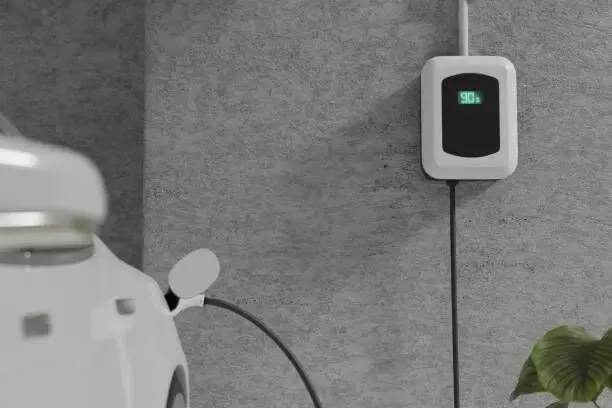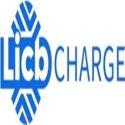Notifications

7 minutes, 13 seconds
-14 Views 0 Comments 0 Likes 0 Reviews

As electric vehicles (EVs) become increasingly common on roads worldwide, the demand for faster, more efficient charging solutions continues to rise. One of the most popular and practical options for home and workplace charging is the 40 amp Level 2 EV charger.
But how fast can a 40 amp charger really charge your vehicle? What makes it different from other options? In this guide, we’ll explore the charging speed, technical specs, installation considerations, and benefits of a 40 amp EV charger — so you can make an informed decision for your charging needs.
Before we dive into performance, it’s important to understand what “amps” measure. An ampere (amp) is the unit of electric current — the flow of electricity through a wire. In charging terms:
More amps = faster charging, assuming the EV can accept the current.
A 40 amp charger delivers more power than a 32 amp unit, but less than a 50 amp one.
It’s similar to water through a pipe — the wider the pipe (higher amperage), the more electricity flows to your EV battery per second.
Typical U.S. homes are equipped with a 100–200 amp electrical panel that distributes power to all appliances. Adding a 40 amp charger means introducing a significant load that may require:
A dedicated 240V circuit (usually with a 50 amp breaker).
Professional installation to ensure code compliance.
In some older homes, an electrical panel upgrade may be needed.
It’s critical to confirm your home’s capacity with a licensed electrician before installation.
A 40 amp EV charger is a Level 2 charging station that operates at 240 volts. It delivers up to 9.6 kW of power, offering a significant upgrade over Level 1 chargers (which plug into standard 120V outlets and deliver 1.4–1.9 kW).
Home garages
Apartment complexes
Workplace parking lots
EV fleets and commercial settings
Let’s break it down:
Power Output: 9.6 kW (40 amps × 240 volts)
EV Battery Example: 60 kWh battery
Time to Full Charge: 60 ÷ 9.6 = ~6.25 hours
In real-world conditions, considering efficiency losses and battery management, the average charging time is 6 to 7.5 hours.
Adds 25–30 miles of range per hour
Ideal for overnight charging or daily top-ups
Your EV’s onboard charger determines how much power it can accept. Even if your charger delivers 40 amps:
If your vehicle accepts only 32 amps, that’s the limit it will draw.
Higher-end EVs (e.g., Tesla, Rivian, Lucid) may accept 48–80 amps, gaining more from higher-rated chargers.
Always check your EV’s specs to ensure compatibility.
Faster charging than 32 amp or Level 1 chargers
Compatible with EVs with larger battery packs
Future-ready for upcoming vehicles with higher charge acceptance
Efficient for overnight, home-based charging
Requires a 240V circuit
May need panel upgrade in older homes
Installation by a licensed electrician is strongly advised
To install a 40 amp EV charger at home, you’ll need:
A 240V outlet (typically NEMA 14-50) or hardwired connection
50 amp circuit breaker (per NEC safety codes)
Proximity to your EV parking spot
Ventilation and weatherproofing if installed outdoors
Optional: Consider load management systems to prevent overloading your panel when running other high-draw appliances.
Nearly all modern EVs support Level 2 charging via a J1772 plug (standard in North America). Tesla vehicles require a simple adapter, often included with the car.
Even if your EV can’t use the full 40 amps, the charger will still work. It will simply deliver the current your vehicle can handle.
| Feature | 32 Amp | 40 Amp | 50 Amp |
|---|---|---|---|
| Power Output (kW) | 7.7 kW | 9.6 kW | 11.5–12 kW |
| Charge Time (60 kWh) | 8–10 hours | 6–7.5 hours | 5–6 hours |
| Breaker Required | 40 amp | 50 amp | 60 amp |
| Installation Cost | Lower | Moderate | Higher |
| Best For | Light daily use | Balanced charging | High-end EVs/fleets |
Conclusion: A 40 amp charger offers the best mix of performance and cost for most EV drivers.
For the majority of EV owners, yes.
A 40 amp Level 2 charger provides:
Fast charging without overburdening your home’s system
Compatibility with current and future EVs
A cost-effective upgrade that’s both smart and sustainable
It’s a great middle ground — faster than 32 amps but more accessible than a 50+ amp setup.
Q: Can I install a 40 amp charger myself?
A: It’s strongly recommended to hire a licensed electrician to ensure safety and compliance with local codes.
Q: Are 40 amp chargers portable?
A: Some are. Look for plug-in models with NEMA 14-50 compatibility for portable use; hardwired models are fixed.
Q: Can a 40 amp charger damage my EV?
A: No. EVs only draw the current they’re designed to accept. The charger simply makes power available.
Q: How much does a 40 amp EV charger cost?
A: Units range from $400–$800, with installation costing $300–$1,200, depending on electrical readiness.
China EV Chargers EV Charger Manufacturer Smart EV Chargers Electric Car Chargers Electric Vehicle Chargers Electric Car Charging Stations

